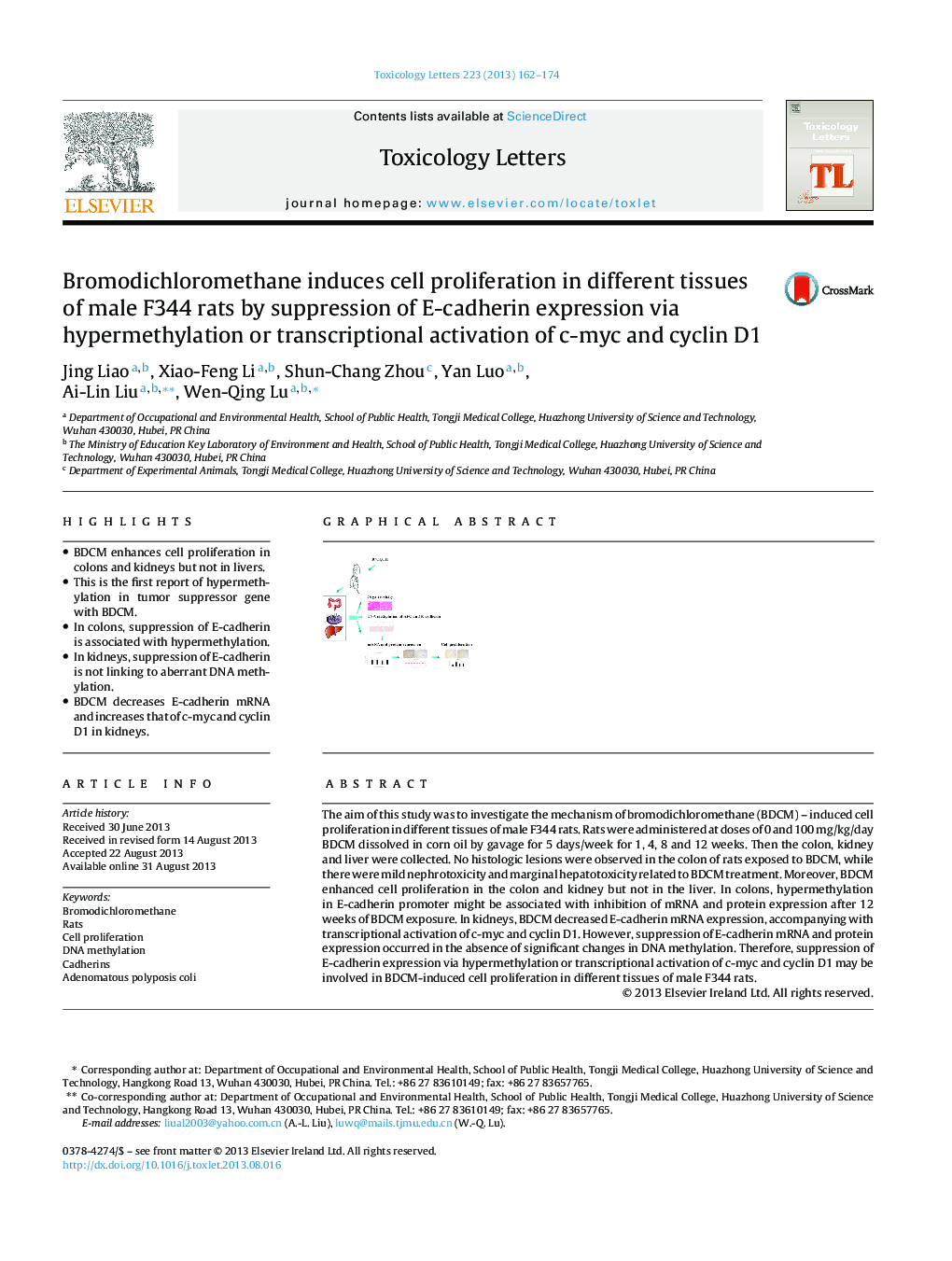| Article ID | Journal | Published Year | Pages | File Type |
|---|---|---|---|---|
| 2599138 | Toxicology Letters | 2013 | 13 Pages |
•BDCM enhances cell proliferation in colons and kidneys but not in livers.•This is the first report of hypermethylation in tumor suppressor gene with BDCM.•In colons, suppression of E-cadherin is associated with hypermethylation.•In kidneys, suppression of E-cadherin is not linking to aberrant DNA methylation.•BDCM decreases E-cadherin mRNA and increases that of c-myc and cyclin D1 in kidneys.
The aim of this study was to investigate the mechanism of bromodichloromethane (BDCM) – induced cell proliferation in different tissues of male F344 rats. Rats were administered at doses of 0 and 100 mg/kg/day BDCM dissolved in corn oil by gavage for 5 days/week for 1, 4, 8 and 12 weeks. Then the colon, kidney and liver were collected. No histologic lesions were observed in the colon of rats exposed to BDCM, while there were mild nephrotoxicity and marginal hepatotoxicity related to BDCM treatment. Moreover, BDCM enhanced cell proliferation in the colon and kidney but not in the liver. In colons, hypermethylation in E-cadherin promoter might be associated with inhibition of mRNA and protein expression after 12 weeks of BDCM exposure. In kidneys, BDCM decreased E-cadherin mRNA expression, accompanying with transcriptional activation of c-myc and cyclin D1. However, suppression of E-cadherin mRNA and protein expression occurred in the absence of significant changes in DNA methylation. Therefore, suppression of E-cadherin expression via hypermethylation or transcriptional activation of c-myc and cyclin D1 may be involved in BDCM-induced cell proliferation in different tissues of male F344 rats.
Graphical abstractFigure optionsDownload full-size imageDownload as PowerPoint slide
